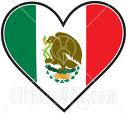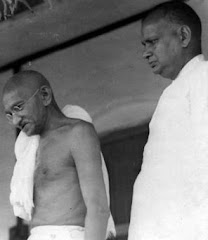Four Sisters (from Laurie)
A day after we arrived in Um al Khair, one of the Bedouin
villages south of Hebron which are constantly threatened by house demolitions,
Linda and I had a meeting with four of the village women. We had already heard
from the men, who had given us a history of the village, from their
grandfather’s forced move off the Negev at the time of the Nakba to their
current situation of harassment by settlers and the Israeli military, but we
wanted to hear from the “other half” of the village, the Bedouin women we had
seen moving silently about in their traditional veils and long dresses, even in
the scorching heat. The meeting was arranged through their husbands, who seemed
to be in charge of everything in the village, so I was prepared to encounter
shy individuals who might be reluctant to share their stories. As soon as they
started talking, however, I realized my misconception: these were strong women,
thoughtful and articulate about their lives as Palestinians and their hopes and
fears for themselves and their children.
Maria (34), Nina (33), Jasmine (31),
and Sarah (25) (not their real names) are all sisters. They teased and joked
with each other as they made their introductions, but became serious when I
asked what they did all day. “We are professionals,” Sarah said. As she
continued, I was surprised to discover that they had all graduated from college
and were employed: Maria as a nurse, Jasmine as a social worker, Nina as a
teacher, and Sarah as an intern for World Vision, an international non-profit
headquartered in Bethlehem. “Palestinian women are the best educated in the
Arab world,” Sarah said, as I was still trying to reconcile the impressiveness
of their credentials with our surroundings: a collection of buildings, some
made of concrete blocks with corrugated tin roofs, others no more than cloth
and poles, sharing space with sheep and goat enclosures on a few acres of
rocky, arid land. For a while, Linda and I had the same kind of conversation
with these women that I could have with my friends sitting in my living room in
South Burlington, Vermont.
I envied the women the communal
nature of their lives; they see each other every day and their mother takes
care of their children when they’re at work. (The children of the village, who
are all cousins, run around during the day in age-cohorts, delighted when a
group of internationals, like us, appears on the scene to break the monotony of
village life.) When we talked about their religion, again, I found I could
relate to these four sisters. Sarah, especially, emphasized the importance of
Islam in their daily lives. She said that she derives peace from her
relationship with God and prayer yields the solution to “any problem” that she
has. However, Islam allows men to have more than one wife and none of them
liked that. It was clear that they had discussed this subject among themselves,
because Sarah could report on what each of them would do if their husbands were
to exercise their patriarchal prerogative. She and Nina were the most radical:
Nina would do the unthinkable in Bedouin society—get a divorce—while she would
refuse to live in the same house as the second wife.
Finally, we came to the topic on
everyone’s mind: the demolitions. Um al Khair, with its tents and shacks, abuts
the relatively small Israeli settlement of Karmel, where residents enjoy
comfortable lives subsidized by the Israeli government. (It was surreal to us,
sleeping in the desert in the “guest tent,” with its canvas cover flapping in
the breeze, to realize that just 50 feet away, settlers were spending the night
in air- conditioned bedrooms.) Since 1980, when the settlement was established,
the village has been targeted for removal—the settlers want to expand
throughout the region. Israeli law allows the demolition of any structure which
has been built without a permit and this community is excluded from the
permitting process. This makes all the structures on their land, including the
lavatory and communal oven, illegal. When soldiers come in with bulldozers to
demolish their homes, the villagers rebuild immediately (often with aid from
the European Union) only to have the new structures demolished as well.
We had heard from the men about the
harm to the community caused by its close proximity to the settlement (one of
them, as a youth of 17, had been shot by settlers and is now brain damaged; he
roams the village always looking for food, communicating with no one.)
Uppermost on the women’s minds was the impact of the settlement and the
demolition orders on the children. Sarah, who runs an informal school during
the summer vacation, said that whenever she asks them to draw a picture, they
all draw houses. Nina broke down when she described the effect of a demolition
on her daughter. She was at work when
she got the call that the bulldozers had appeared; by the time she got home,
the house was down and the 3 year old was crying and had wet herself. For the
next six months, she told us, her little girl “shook.” She would not go outside,
but either watched TV or slept. The other women talked about their children
having nightmares and the one little boy who hides in the closet whenever he
sees a car.
“We are living in a big prison,”
Sarah said, a sentiment that was echoed by a resident in the Hebron settlement
of Tel Rumeida later in our trip. The Bedouins’ only hope of retaining their
land is through the courts. They have the title to the property which is under
demolition order and court battles have prevented its “transfer” to the Israeli
government until now. But what of the future? How long can these people hold
out against the tide of Israeli expansion? Nina told us that she and her
husband are making plans to move—either to Canada or Germany—as soon as they
can make the arrangements. “It will be hard,” she said, “but I have three
girls. I want them to have a different life.” I looked at all four of these
lovely, vibrant women. I wanted them, not just their children, to have a
different life. With their intelligence and determination (Sarah taught herself
excellent English by watching TV) they could do so much with the freedom that
would come with an end to the occupation. I thought of another Palestinian we
met, Hani Abu Hakel. Whenever you ask him, “How are things?” he replies, “It’s
good,” meaning, whatever Allah allows to happen is good. These women have
become strong having had to face so much adversity in their lives and their
love for each other is palpable. But people need freedom to really flourish. I
have a bone to pick with Allah.
(The sisters
would not allow their photo to be taken, so you will have to imagine for
yourselves how beautiful they are.)








1 comment:
I loved your article Laurie. What incredible women you have had the opportunity to meet. They are so strong and resilent. It is incredibly sad what is happening on a daily basis to the people of Palestine. So very wonderful what you, John and others are doing to get the word out and to demonstrate solidarity with them.
Be well,
Susan
Post a Comment